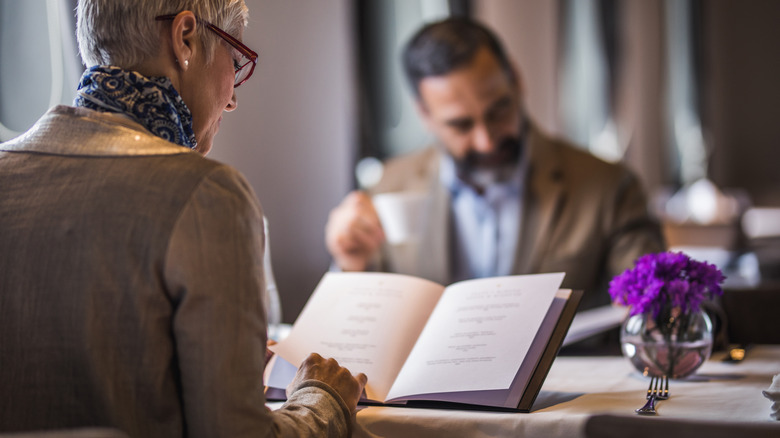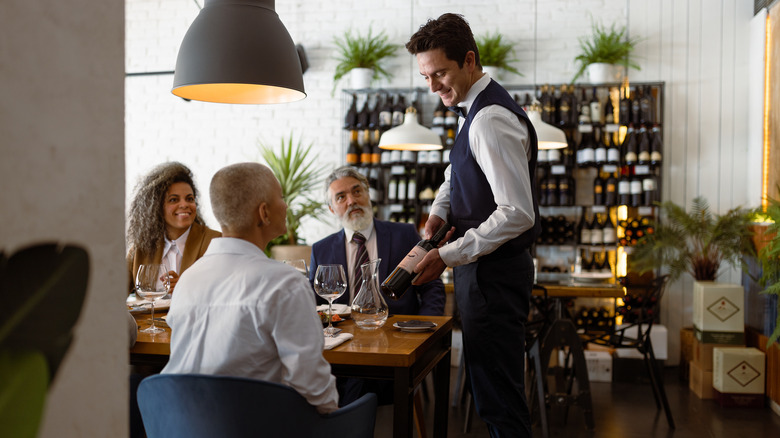The Mistake To Avoid When You Crack Open A Wine List
Ever heard the saying, "All that glitters isn't gold?" It can certainly feel pretty golden when you sit down at a new or longtime favorite restaurant and whip open the wine list. Serif fonts script enticing buzzwords like "oaky," "floral," and "2010." Okay, maybe that one's a little out of budget for today. But, look, they have your favorite — Chenin Blanc. Great news! Why not order it to enjoy with your dinner? Actually ... we'll tell you exactly why.
Selecting a wine that will complement your meal is basically Fine Dining 101. Even though it may feel all too easy to order a fallback favorite in a panic of performance anxiety when the server asks which wine you want, don't order a glass of wine before you've picked your entrée. Your all-time favorite bottle could clash with your meal and then taste, well, off. Do yourself a favor and crack open the menu first.
As a general rule, reds pair better with bolder meats like steak, and white wines are well suited for chicken and seafood. Vegetable entrées tend to go well with white wines, but umami-forward mushrooms would be complemented by an earthy burgundy like Pinot Noir. A bright, slightly citric orange wine would make a fitting accompaniment to aubergine, couscous, or kimchi.
Don't skip the menu
Unless you're opting for a classic food and wine pairing like Sauternes with foie gras or Chablis with oysters, it can be tough to navigate the nuanced gastronomic rules that determine a good duo. But, no matter what you select, the wine should be sweeter than the food. Also, keep in mind that pairing a dry wine with a salty food will reduce the dryness of its mouthfeel and flavor. For saltier dishes, air on the side of sweet and semi-sweet wines so the acidity doesn't compete with the sharpness of the meal.
As with any dining question, if you're feeling stumped, just ask your server. They won't judge you for not packing an encyclopedic Rolodex of flawless wine and food pairings. Chances are they'll be able to provide an expert opinion on the matter. After all, they spend a lot more time in this restaurant than you do, and they're much more familiar with the menu. If they can't personally offer any recommendations, there's likely somebody in the kitchen to whom they can relay the question.
If you're eating at a fine dining establishment, the restaurant might even have a sommelier on duty who can help guide your selection. "Which wine do you think would pair well with the Pasta Carbonara? I like reds, but nothing too dry," is all that stands between you and a memorable meal.

